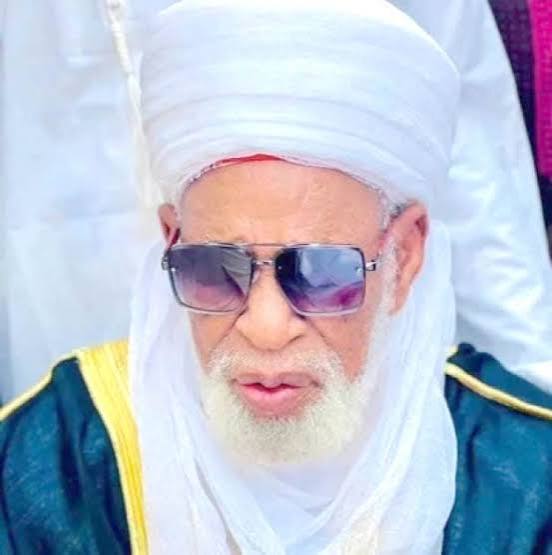Renowned Islamic Scholar, Sheikh Dahiru Usman Bauchi, Passes On

Iliyasu Abdullahi Bah
News of the death of renowned Islamic scholar and spiritual leader, Sheikh Dahiru Usman Bauchi, began circulating early Thursday morning, throwing the Nigerian Muslim community into deep mourning. The death of the revered cleric was later confirmed by a former presidential aide to late President Muhammadu Buhari, Bashir Ahmad.
In a post on X, Ahmad wrote: “It is with a heavy heart and complete submission to the will of Allah (SAW) that we receive the news of the passing of our revered leader, Sheikh Dahiru Usman Bauchi, one of the leaders of the Tijjaniyya order in Nigeria.”
The passing of the respected cleric was also confirmed by his son, Sayyadi Ali Dahiru Usman Bauchi, who addressed the public in an emotional message.
“It is confirmed; the Sheikh has returned to his creator. We are all from Allah and to Him we shall all return,” he said.
He described his father’s death not only as a moment of sorrow but also as the completion of a life wholly devoted to the service of Allah and humanity.
“It is time for the Sheikh to rest. We thank Almighty Allah. Allah has done everything for us by sparing the life of the Sheikh till this time. The Sheikh’s life was well spent. Alhamdulillah,” he added.
Sheikh Dahiru Usman Bauchi was a towering figure in the Tijaniyya Sufi order and one of the most influential Islamic clerics in West Africa. Renowned for his deep knowledge of the Qur’an, Hadith and Islamic jurisprudence, he dedicated his life to preaching, teaching, and spiritual guidance.
He was particularly celebrated for his annual Qur’anic exegesis (Tafsir), which regularly drew tens of thousands of followers during the holy month of Ramadan and other major Islamic gatherings. Over the decades, his teachings transcended borders, earning him millions of followers across Nigeria, West Africa and beyond.
Born into a lineage of Islamic scholarship, Sheikh Dahiru Usman Bauchi spent a lifetime nurturing religious learning, promoting peaceful coexistence and engaging in extensive philanthropic activities, including Islamic education, welfare support and communal development.
Tributes have continued to pour in from scholars, traditional rulers, political leaders and followers, who described his death as a monumental loss to Islam and the entire nation.
His death marks the end of an era for the Tijaniyya movement and the wider Muslim community, leaving behind a legacy of faith, discipline, scholarship and service to humanity.
Funeral and burial arrangements are expected to be announced by the family in line with Islamic rites.
